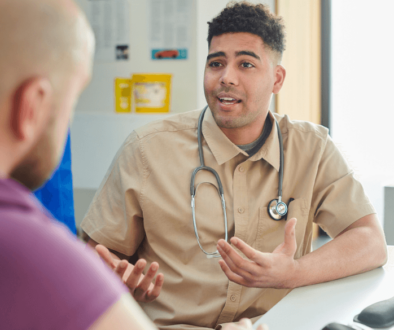The importance of training & continuing professional development (CPD) as a GP
As the healthcare sector is constantly changing, continuing professional development (CPD) is key for GPs to ensure they are up to date with the latest developments and emerging trends. Every GP is responsible for their own learning, including identifying their training needs, planning how they should be addressed and undertaking the necessary learning to support with improving the standards of their own practice.
It’s what makes the career so exciting, as even after you transition from a trainee to general practice you are constantly learning and developing as a healthcare professional. This helps you to remain satisfied throughout your career and continue to love what you do, as well as enhancing your career opportunities. To help you feel confident with planning and recording your CPD activities, we have put together a useful guide detailing:
- Why CPD is important
- CPD requirements for doctors
- Using CPD to support your appraisals
Why is CPD important in healthcare?
CPD is fundamental in healthcare as it helps GPs to stay up to date with changes in general practice and evolving patient needs. This ensures that high standards of care are maintained for patients and that you can build on your knowledge and interests. Many doctors may enter general practice without a specialist interest in mind to pursue in the future, however with carefully structured and well thought out CPD, many come to find a specialist area that they dedicate much of their future time and research to.
CPD requirements for doctors
Committing to regular CPD outside of on-the-job training is a professional requirement for each individual GP. Not only does committing to regular training give your employers the confidence they need that you’re keeping up to date with all the changing regulations within your field, but it also reassures your patients that they are receiving the best care possible.
How much CPD you undertake is completely down to you and will depend on your scope of practice and how you’d like to tailor your learning to suit your needs. Like with any other training it can take a number of forms, though GPs should demonstrate learning across a variety of activities, including:
- Workshops
- Seminars
- Conferences
- Reading around a certain subject
- Learning from professional conversations with peers
- Shadowing others
- Collaborating with colleagues e.g., working on an audit project
- Courses
- E-learning
Using CPD to support your GP appraisal
You are also required to keep a record of all your CPD activities to show your employer, but also to gather evidence to put towards revalidating your license, so it’s a useful good habit to get into early on in your career. When recording your CPD, it’s important that you focus on the outcome by reflecting on what you have learned and how this can help you to improve the quality of your practice, rather than simply stating you’ve completed it. You can do this by getting into the habit of detailing:
- The CPD method
- A description of the topic and how it relates to your practice
- The date(s) in which it was undertaken
- The number of hours it took
- Evidence that you undertook the CPD activity e.g., a certificate of attendance
At your annual appraisals, you will need to bring a summary of your CPD activities to demonstrate that you have met the GP revalidation requirements. This revalidation process is how doctors show that they are keeping up to date and fit to practice and will be personal to you and your individual circumstances.
During your annual appraisal, you will also need to collect supporting information that covers the whole of your practice over the five-year cycle and all aspects of your work, including:
- Clinical (including voluntary work) and non-clinical (including academic roles)
- NHS, independent sector and private work
Similar to your CPD, there is no upper or lower limit on the amount of supporting information you need to provide, however, as advised by the GMC it should be sufficient quality and help to identify the areas for development and strengths in practice.
Find your next GP position with Key Medical Services
If you are about to qualify as a new GP and enter the world of work in healthcare, our team of specialist consultants would be happy to guide you in this time. From offering career advice to providing support with sourcing assignments, they’ll be sure to help you find the best opportunities to suit you and align with your long-term goals. They will also help you to get your compliance levels up to 100% so that you never miss an opportunity.



